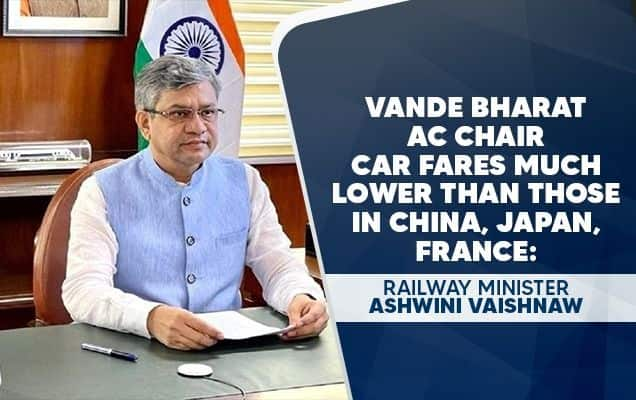The Prime Minister of India, Narendra Modi, paid an official visit to Australia from 16-18 November 2014, following the G-20 Summit, as the guestof Prime Minister Tony Abbott.
Prime Minister Modi held wide-ranging talks with Prime Minister Abbott, addressed a joint sitting of both houses of the Parliament (the first time an Indian prime minister has done so) and met the President of the Senate, the Speaker of the House of Representatives and the Leader of the Opposition in Canberra. He also visited Brisbane, Sydney and Melbourne, where he met political leaders, academics, businesspeople and sporting figures and addressed members of the Australian Indian community. He visited research, cultural and historic institutions. A number of agreements were signed and new initiatives launched.

For the first time,Australian and Indian Prime Ministers have made reciprocal visits in the same year, underscoring the growing depth of the Australia-India strategic partnership and building on converging interests, shared values and common democratic institutions.
Prime Minister Abbott and Prime Minister Modi recognised that the partnership has tremendous room for growth and agreed to unlock the vast potential of the economic relationship, especially in priority areas such as resources, education, skills, agriculture, infrastructure, investments, financial services and health.
They directed that anequitable, balanced, mutually beneficial and high quality Comprehensive Economic Cooperation Agreement be brought to an early conclusion to realise the potential of commercial relations. The next round of negotiations will be held in December.The two Prime Ministers hoped for better market access for good and services. Theyexpressed satisfaction at the increase in investment while recognising the tremendous untapped potential in both directions. Indian investment in the resource sector in Australia promises to create jobs and value for the Australian economy just as Australian investment in cold chain storage, energy, infrastructure and other sectors can do for the Indian economy.
Strong business links are critical. Prime Minister Modi and Prime Minister Abbottreconstituted the Australia-India CEO Forum, and will shortly appoint new co-chairs. A delegation of Indian CEOs also visited Australia.Australian Business Week in India will be held in several Indian cities in January 2015. India will hold a Make in India event in Australia in 2015 and organise shows in gems and jewellery, engineering and pharmaceuticals to showcase India’s manufacturing capabilities.
Energy is a central pillar of the economic relationship. Prime Minister Abbott and Prime Minister Modi agreed to expedite approvals for key mining investment projects. They agreed to cooperate on clean coal technologies and welcomed the intention to explore opportunities for partnershipbetween Australian institutionsandthe Indian School of Mines inDhanbad. They agreed to expedite progresstowards early conclusion of the administrative arrangements to implement theCivil Nuclear Agreement signed in September.Australian supply of uranium in coming years will enhance India’s energy security.
Australia and India are committed to working together to combat terrorism and other transnational crimes. Prime Minister Modi and Prime Minister Abbott agreed that the existing Joint Working Group on Counter-Terrorism would be renamed to cover other transnationalcrimes, including on-going cooperation on illegal migration. Theywitnessed the signing of an Agreement on the Transfer of Sentenced Persons and a Counter-Narcotics MoU.
They noted theconclusion of a new Framework for Security Cooperation to guide closer bilateral collaboration across the security spectrum, including in defence, counter-terrorism, cyber policy, disarmament and non-proliferationand maritime security.The Framework demonstrates the unshakeable resolve of the two countries in combating and defeating terrorism, including the threat posed by foreign fighters joining extremist groups.
Prime Minister Modi and Prime Minister Abbottdecided to extend defence cooperation to coverresearch, development and industry engagement. They agreed to hold regular meetings at the level of the Defence Minister, conduct regular maritime exercises and convene regular Navy to Navy, Air Force to Air Force and Army to Army staff talks.
They recalled the time spent together at the Australian War Memorial and agreed to strengthen efforts to commemorate the shared military history, including through the WWI centenary. They welcomed the cooperation between the two national broadcasters, Prasar Bharati and the ABC, to co-produce a film on Gallipoli.
Australia and India are working together more closely to build a safe and prosperous region, including through key regional forums such as the East Asia Summit. Both countries value their engagement with ASEAN, are strongly committed to building up the Indian Ocean Rim Association, and support regional efforts to create stronger humanitarian and disaster relief capabilities, combat malaria and boost regional trade, including through the Regional Comprehensive Economic Partnership.

People-to-people links are transforming the relationship.Prime Minister Modi and Prime Minster Abbott welcomed the signing of a Social Security Agreement, which will enhance two-way mobility and lower business costs. They welcomed the introduction of measures to facilitate easier travel and witnessed the signing of an MoU on Tourism, which will promote continued strong growth in an industry vital to both countries. India will hold a Tourism Week in Australia in 2015. Negotiations on an Audio-visual Co-production Agreement are progressing well, with the aim of boosting links between the dynamic film industries.
Educational links are deep and strong. The Prime Ministers welcomedcooperation between Australian and Indian universities and in particular joint PhD programmes to encourage research.They announced collaboration on rejuvenatingthe Ganga River. They welcomed two-way exchanges and cooperation in river basin planning under the water partnership and a new program of joint research on agricultural water management.
Prime Minister Modi and Prime Minister Abbott agreed the two countries would cooperate in India’s efforts to strengthen its sporting capabilities, including through the private sector and in establishing a world-class Sports University.They welcomedthe signing of an MoU on Arts and Culture, which will create a framework for deeper cultural exchanges. A Festival of India will be held in Australia in 2015 to showcase the dynamism and diversity of contemporary Indian culture.
Prime Minister Modi renewed his invitation to Prime Minister Abbott to visit India again at his convenience. They agreed that high-level visits played a key role in enhancing the strategic partnership between the two countries.
Prime Minister's statement to the media during his visit to Australia (November 18, 2014)
His Excellency Prime Minister Tony Abbott Friends from Media
I thank Prime Minister Abbott, the people and the Federal and the State Governments of Australia for a wonderful visit so far.
Prime Minister Abbott and I have spent the last week together – at the East Asia Summit, the G20 and for this bilateral summit. This reflects the broad framework of our relationship, defined by a growing partnership in the cause of a peaceful and prosperous world, and a strong and broad-based bilateral relationship.
This is a natural partnership, arising from our shared values and interests, and our strategic maritime locations.
India and Australia have a great economic synergy. There are huge opportunities for partnership in every area we can think of – agriculture, agro-processing, resources, energy, finance, infrastructure, education, and science and technology.
The economic climate in India has changed. I believe it will be a lot easier to convert opportunities into concrete outcomes. Prime Minister Abbott and I discussed what we should do to impart real momentum to our economic partnership.
Reconstituting the CEO Forum is an important step. We have agreed to speed up negotiations on the Comprehensive Economic Partnership Agreement. I also asked for easier access for Indian business to the Australian market and quicker investment approvals.
India will hold a ‘Make in India’ show in Australia in 2015. Australia would also be holding Business week in India in January 2015. We also agreed on seeking early closure on the civil nuclear agreement, which will give Australia a chance to participate in one of the most secure and safe nuclear energy programme in the world. Cricket and hockey are natural glue between our people. I know yoga is enormously popular here. We need to connect our people more. I am pleased with the new Cultural Exchange Programme signed today. India would establish a Cultural Centre in Sydney by February 2015. We plan to hold a Festival of India in Australia in 2015 and tourism weeks in Australia.
The Social Security Agreement is a really positive development. It will help in making our business relations stronger, especially in the Services Sector.
I greatly welcome the New Framework for Security Cooperation. Security and defence are important and growing areas of the new India-Australia partnership - for advancing regional peace and stability, and combating terrorism and trans-national crimes.
This morning's visit with Prime Minister Abbott to the Australian War Memorial reminded us of the need to strive together for a better world. In conclusion, I would like to say that it has been nearly three decades since the last Prime Ministerial visit from India. The fact that we have exchanged visits in two months is a sign of better times to come.
I am deeply honoured by the opportunity to speak to the Parliament and also look forward to spending the evening at the Melbourne Cricket Ground with Prime Minister Abbott.
Thank you once again.













